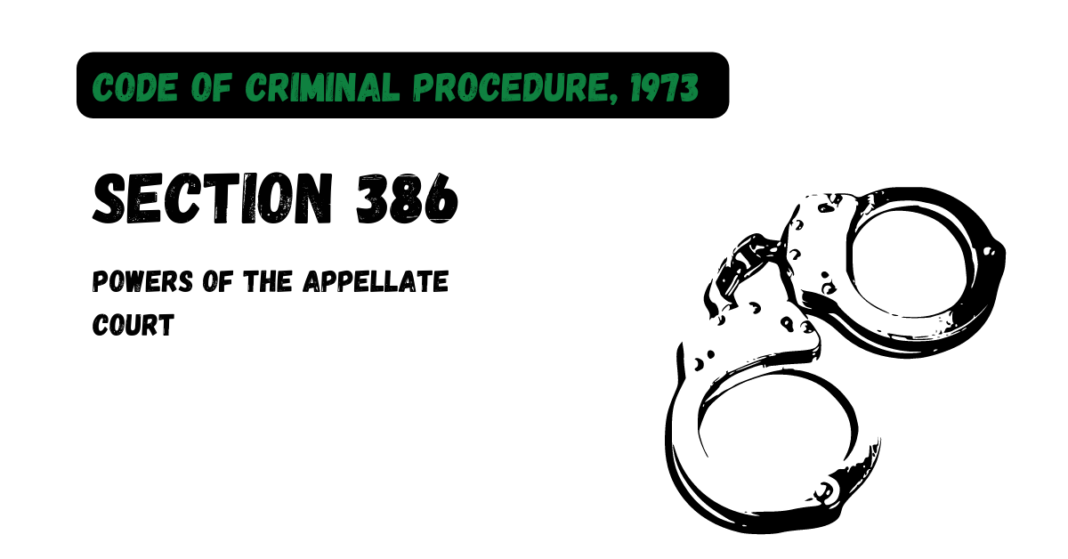After perusing such record and hearing the appellant or his pleader, if he appears, and the Public Prosecutor if he appears, and in case of an appeal under section 377 or section 378, the accused, if he appears, the Appellate Court may, if it considers that there is no sufficient ground for interfering, dismiss the appeal, or may—
(a) in an appeal from an order or acquittal, reverse such order and direct that further inquiry be made, or that the accused be re-tried or committed for trial, as the case may be, or find him guilty and pass sentence on him according to law;
(b) in an appeal from a conviction—
(i) reverse the finding and sentence and acquit or discharge the accused, or order him to be re-tried by a Court of competent jurisdiction subordinate to such Appellate Court or committed for trial, or
(ii) alter the finding, maintaining the sentence, or
(iii) with or without altering the finding, alter the nature or the extent, or the nature and extent, of the sentence, but not so as to enhance the same—
(c) in an appeal for enhancement of sentence—
(i) reverse the finding and sentence and acquit or discharge the accused or order him to be re-tried by a Court competent to try the offence, or
(ii) alter the finding maintaining the sentence, or
(iii) with or without altering the finding, alter the nature or the extent, or, the nature and extent, of the sentence, so as to enhance or reduce the same;
(d) in an appeal from any other order, alter or reverse such order;
(e) make any amendment or any consequential or incidental order that may be just or proper:
Provided that the sentence shall not be enhanced unless the accused has had an opportunity of showing cause against such enhancement:
Provided further that the Appellate Court shall not inflict greater punishment for the offence which in its opinion the accused has committed, than might have been inflicted for that offence by the Court passing the order or sentence under appeal.





